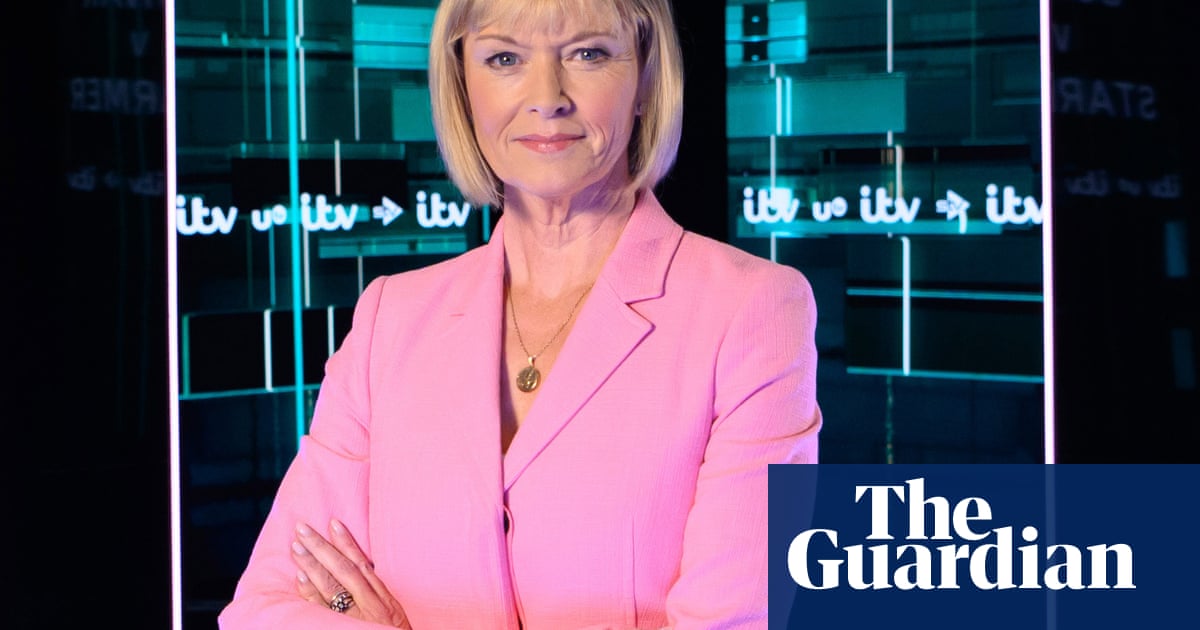Julie Etchingham has withdrawn her candidacy to join theGarrick Club, uncomfortable with the protracted process of being vetted by the London club’s membership of 1,500 men.
The broadcast journalist said she would not comment on her decision, but she is understood to have been uneasy at the level of hostility displayed by men opposed to the admission of women during a candidacy lunch at the club, when members have the opportunity to question prospective members.
One member said he understood that with “hardly any women being elected, it is very uncomfortable to walk into a room full of men scrutinising (and ogling) you”.
Only three women have been admitted in the year since members decided todrop the club’s men-only rulelast May, 193 years after the club was founded. The comedian Matt Lucas was one of six men elected last month alongside one woman, Celia Imrie, who joins fellow actors Judi Dench and Siân Phillips, named as members last year.
Several women from the first batch of female nominees for membership have expressed frustration at the club’s “half-hearted” steps towards admitting women.
After decades of internal wrangling over the issue, 60% of members voted last May to confirm that women could be admitted to the club. But none of the seven women nominated as prospective candidates last year, all of whom occupy senior roles in journalism, law or academia, have yet been voted in as members.
One woman whose candidacy is being considered by the club described the vote to admit women as a cynical public relations gambit, designed to allow the club to continue functioning quietly as essentially a men-only club. She said she found the vetting process absurd.
“We’re all being made to feel we need to beg to join; most of us don’t give a toss whether we join or not and think they should be making every effort to persuade us,” she said, asking not to be named to avoid alienating her sponsors at the club.
She said it was clear that men who opposed women’s membership were continuing to fight against the swift admission of women. “It’s frankly ridiculous and embarrassing. What are they scared of?”
The actor Juliet Stevenson said she had heard nothing further from the club since she received a phone call from a member early in 2024 asking her if she would like to be nominated. She was uncertain about whether her candidacy had been dropped.
“I was asked if my name could be cited as a potential candidate and I agreed, but since then I’ve heard nothing more,” she said. “I haven’t set foot in the place. It wouldn’t surprise me if they’ve decided they don’t want a troublemaker like me in there.”
One recent visitor to the club said the vote to admit women had had no impact on the atmosphere there, with just two women in a dining room full of approximately 50 men. A cohort of men who remain opposed to the rule change have set up a WhatsApp group named Status Quo where they continue to protest against the admission of women.
The classicist Mary Beard, the former home secretary Amber Rudd, the Channel 4 News presenter Cathy Newman and the Labour peer Ayesha Hazarika were among the first nominees to join the club, along with Stevenson, Margaret Casely-Hayford, who was chair of Shakespeare’s Globe and was chancellor of Coventry University until last year, and Elizabeth Gloster, a former appeal court judge. None of them have yet been approved for membership.
Sign up toHeadlines UK
Get the day’s headlines and highlights emailed direct to you every morning
after newsletter promotion
Another female prospective candidate said she understood that there was a “dead man’s shoes” element to the process of becoming a member (new members can only be appointed when old members die) but she hoped that the club would soon vote in some female lawyers, to balance the high concentration of senior barristers, judges and solicitors at the club. The club has consistently said it would not fast-track female members, stressing that women may have to wait three or four years for approval.
“It would be a helpful change if they brought in some female members of the legal profession; it would demonstrate the keenness of members to modernise themselves,” she said.
A string of high-profile names resigned from the Garrick last year after the Guardian published a long list of senior figures from the civil service, politics, the arts and the judiciary who were members of a club that had repeatedly blocked the admission of women since the 1960s.
Listed alongside the king were the then deputy prime minister, dozens of members of the House of Lords and 10 MPs, as well as heads of influential thinktanks, law firms and private equity companies, academics, senior journalists, the head of the Royal Opera House and the head of the Independent Press Standards Organisation.
The head of the MI6, Richard Moore, and the then head of the civil service resigned from the club after deciding that membership was incompatible with their organisations’ commitment to improving diversity. Several judges also left the club.
The Garrick club did not respond to a request for comment.
